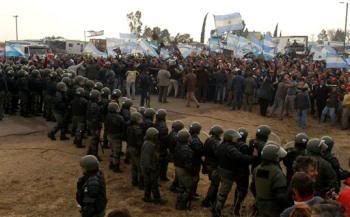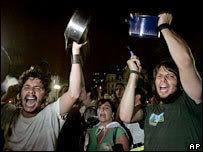cross posted from The Dream Antilles
It Can’t Happen Here is the title of a 1935 novel by Sinclair Lewis. It raises the question whether a rightwing, fascist political party can come to power in the US. It used to be that the very idea was preposterous, unthinkable, impossible. I’m no longer so sure of that, and acknowledging the frightening possibility has changed my reading of stories about events in other countries in frightening, perplexing, alarming ways.
A short synopsis of It Can’t Happen Here may help:
It features newspaperman Doremus Jessup struggling against the fascist regime of President Berzelius “Buzz” Windrip, who resembles (to some extent) the flamboyantly dictatorial Huey Long of Louisiana and Gerald B. Winrod, the Kansas evangelist whose far-right views earned him the nickname “The Jayhawk Nazi”. It serves as a warning that political movements akin to Nazism can come to power in countries such as the United States when people blindly support their leaders.
Hmmm. This isn’t the only novel with this theme. The most recent may be Philip Roth’s 2004 novel The Plot Against America:
The novel follows the fortunes of the Roth family during the Lindbergh presidency, as antisemitism becomes more accepted in American life and Jewish-American families like the Roths are persecuted on various levels.
The President Lindbergh of the book is, well, a fascist, a Nazi sympathizer decorated earlier by Nazis. And his presidency fosters nationalism, isolationism, anti-semitism and racism as if those were aspects of US patriotism.
The New York Times review described the book as “a terrific political novel” as well as “sinister, vivid, dreamlike, preposterous and, at the same time, creepily plausible.”
Preposterous. Because it couldn’t happen here, right? Or could it? I used to believe it couldn’t happen here. I don’t know what we call the trend of the last 7 years, but we cling desperately to the idea that that couldn’t really happen here, not really, why, our country is constructed in a way that prevents that from happening, right? I mean, we have the Constitution and a democracy and checks and balances, don’t we? Hah.
But what if you believe it could happen? Just assume for the sake of this discussion, that it could. Let’s assume that what is happening now and has been happening for the past seven years (the Patriot Act, the torture, the repression, the throttling of free speech, the lawlessness, the signing statements, the extraditions, the raids on immigrants, the endless, long list of abuse of power) became even more pronounced and even more widespread and even more blatant. Then all of those stories we read about the excesses of nearby, foreign governments but dismissed as not being able to happen in the US, all of those stories might actually be read as cautionary tales, stories about what might happen in the US unless things changed, unless Constitutional government were restored.
Three stories, all from South America in the 1970’s illustrate this nicely. They make it clear that horrible injustices that have occurred in other countries aren’t so impossible in the US. And we need to think of them differently.
Item 1. Jacobo Timmerman:
In the decade of the 1960s, Timerman established himself as a popular journalist, and, before the decade had come to a close, he was able to found two different weekly news magazines. Later, from 1971 to 1977, Timerman edited and published the left-leaning daily La Opinión. Under his leadership, this paper publicized news and criticisms of the human rights violations of the Argentine government during the early years of the “Dirty War”. On 15 April 1977, Timerman was arrested by the military. Thereafter, he was subjected to electric shock torture, beatings, and solitary confinement. These experiences were chronicled in his 1981 book , CellPrisoner Without a Name, Cell Without a Number, and a 1983 movie by the same name. /snip
After his release from prison in September 1979, Timerman was forced into exile and sent to Tel Aviv, Israel.
Item 2. Juan Carlos Onetti:
He went on to become one of Latin America’s most distinguished writers, earning Uruguay’s National Prize in literature in 1962. In 1974, he and some of his colleagues were imprisoned by the military dictatorship. Their crime: as members of the jury, they had chosen Nelson Marra’s short story El guardaespaldas (i.e. “The bodyguard”) as the winner of Marcha’s annual literary contest. Due to a series of misunderstandings (and the need to fill some space in the following day’s edition), El guardaespaldas was published in Marcha, although it had been widely agreed among them that they shouldn’t and wouldn’t do so, knowing this would be the perfect excuse for the military to intervene Marcha, considering the subject of the story (the interior monologue of a top-rank military officer who recounts his murders and atrocious behavior, much as it was happening with the functioning regime).
Onetti left his native country (and his much-loved city of Montevideo) after being imprisoned for 6 months in Colonia Etchepare, a mental institution. A long list of world-famous writers-including Gabriel García Márquez, Mario Vargas Llosa and Mario Benedetti-signed open letters addressed to the military government of Uruguay, which was unaware of the talented (and completely harmless) writer it had imprisoned and humiliated.
As soon as he was released, Onetti fled to Spain with his wife, violin player Dorotea Mühr.
Item 3. Charles Horman:
In 1972, he settled temporarily in Chile to work as a freelance writer. On September 17, 1973, six days after the US-backed military takeover, Horman was seized by Chilean soldiers and taken to the National Stadium in Santiago, which had been turned by the military into an ad hoc concentration camp, where prisoners were interrogated, tortured and executed. The whereabouts of Horman’s body were presumably undetermined, at least according to the Americans, for about a month following his death, although it was later determined that, after his execution, Horman’s body was buried inside a wall in the national stadium. It later turned up in a morgue in the Chilean capital.
If you read these three items with the idea that Argentina, Uruguay, and Chile aren’t the US and these things just couldn’t happen here, they are far away, exotic but commonplace examples of banana republic injustice. They feel like scary fiction, but fiction nonetheless.
But if you assume instead that ’70’s South America isn’t really all that very much different from the present US, or, if you insist, from where the US is headed, the stories become chilling, frightening, and worrisome in a new way. They smell like oppression, abuse, repression, and loss of human rights. Are we protected from these things or not? Are we safe? Are we free?
This is just another reason why we simply cannot afford to continue the current trend in this country. And it’s a reason why we have to take the present threats from Bushco and its allies seriously. And it’s a reason why we need jealously and vigorously to protect our civil rights.



